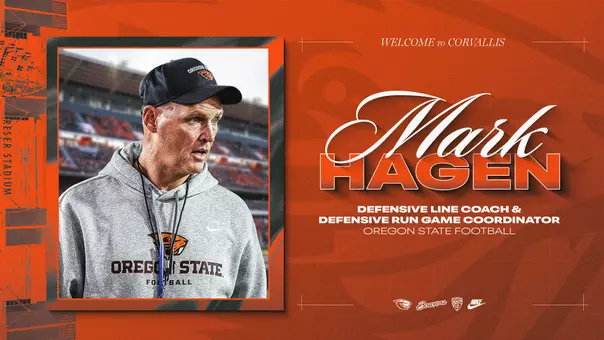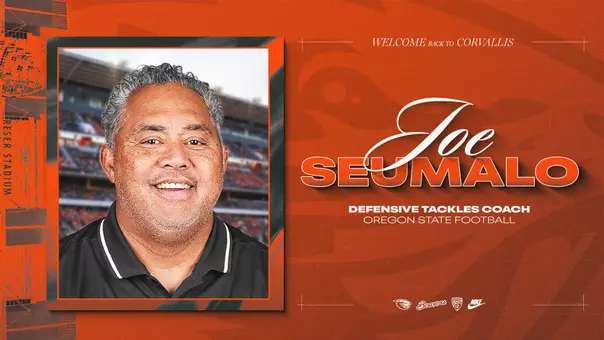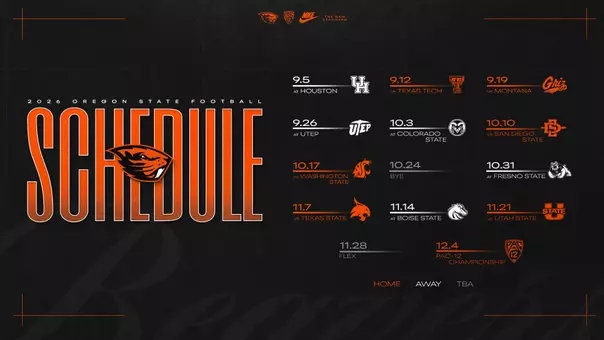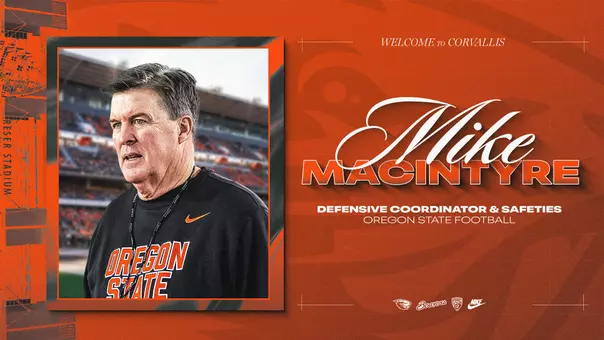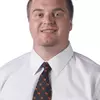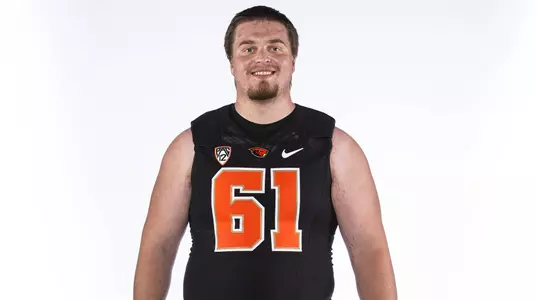
Student-Athlete Profile - Drew Clarkson
August 17, 2015 | Football
By Brooks Hatch
OSUBeavers.com
When Drew Clarkson says he's just happy to be here, it's not just lip service or a throwaway line.
After enduring four rounds of chemotherapy, follow-up treatment and rehab several years ago while successfully fighting Stage 2 testicular cancer in his junior year at Camas (Wash.) High School, the redshirt freshman guard knows you can take nothing for granted.
Each day must be appreciated, and lived to its zenith. Otherwise, you're just cheating yourself and, by extension, your family, friends, and the phalanx of health-care providers who helped him survive the biggest challenge of his young life so he could thrive at Oregon State.
“When it happened, it definitely changed my outlook and my perspective on life,” the 6-foot-3, 291-pound projected agricultural sciences major said in recounting how his battle with cancer impacted him. “It made me a better person, and happier with things” that may have bothered him in the past.

“It helped me understand that nothing is easy, that you have to work through it. [Learning that] has helped me on the field, too.
“After battling testicular cancer, I'm really happy to be out here and to be grinding. The adversity I went though, the 8-hour days of chemo, made me stronger, learning how to push through it when things get hard.”
Clarkson's ordeal began three years ago, shortly after the all-conference and all-state center received his first scholarship offers from Northern Colorado and Eastern Washington of the Big Sky Conference after his junior season.
He noticed a lump on his right testicle that developed into a solid mass over a week or so. Internet research alerted him to the possibility of testicular cancer, the most common form of the disease for males age 15 through 35.
A subsequent CAT scan revealed a tumor, so surgeons removed his right testicle along with the tumor, which was found to be malignant. Shortly thereafter, he began four rounds of chemotherapy treatment at Compass Oncology in Tualatin.
“During the chemo week, every day I would sit in a chair with an IV for eight hours” as the cocktail drip entered his body through a port in his chest, he recalled. “Chemo is a poison. It kills your blood cells.
“My immune system, my skin cells, my white blood cells, my hair cells were destroyed. I lost my hair. I had a weak immune system, I sunburned insanely easy. I just had to lay low, and stay inside.”
Not all of his fellow patients were as fortunate as Clarkson. But testicular cancer has a 95-percent recovery rate and in this case real life matched the odds and Clarkson was cured.
Ironically, some good memories were created during his chemo sessions. Coaches hadn't forgotten the promise he showed as a junior, and believed he'd be a force by the time he got to college.
“I got scholarship offers while sitting in my chemo chair; I would get a text from a head coach” delivering the uplifting news, he said. “It happened really fast. I got offers from Oregon State, Washington State and Colorado all in the same day almost.
“It gave me hope, definitely” that brighter days were in store. “My mindset was, 'I have to play my senior year,' and knowing that guys believed in me beyond that, and that I was getting offers, definitely was a motivation” to return to the field.

Clarkson worked out while undergoing chemo and played his senior season a month after his final session. While clearly not 100 percent, he still earned repeat all-state and all-league honors, and was named to the Tacoma News-Tribune's “Northwest Nuggets” and to the Seattle Times' 16-man “Red Chips” teams.
Clarkson wasn't done with cancer yet, however. He organized an “Everyone Walk” fundraising event for testicular cancer research as his senior project at Camas High, and he continues to take an active, but not outspoken, role in the fight against the disease.
“I don't have a fundraiser going on currently but it is something I'll be involved in my entire life,” he said. “I still talk to people about it,” and has counseled others similarly afflicted.
He has not specifically encouraged his teammates to examine themselves, he said. But he's happy to serve as a resource, if asked, about a subject that many aren't comfortable sharing with others.
“The biggest thing is, people get kind of embarrassed talking about their testicles,” he said. “But it's your body and you have to check yourself.”
Clarkson redshirted as the scout team center in 2014 before being sidelined by a late-season foot injury. He was shifted to guard in spring practice and he's fighting for a spot on the two-deep depth chart.
He's also glad his focus is completely back on football, not his health.
“Coming into this year is probably the best I've felt [since being diagnosed} and it just keeps getting better,” he said. “I don't have to worry about anything else, I just do my job.
“Football is going well. It's a grind, it's tough, but every day we are getting better. My goal is to be consistent, work on my craft, and be ready to go when I'm needed.
“To get on the field and get consistent playing time, I have to know what I'm doing, be consistent and be accountable.”

The media picked the Beavers to finish last in the Pacific-12 Conference's North Division in its annual preseason poll. But as one would expect from a cancer survivor, Clarkson is far more optimistic and envisions good things are in the cards.
“People may not think we're going to do much, but we believe” success is possible, he said. “We just have to go out and show it.
“Every day is a battle. If you get better every single day, you're going in the right direction.”



